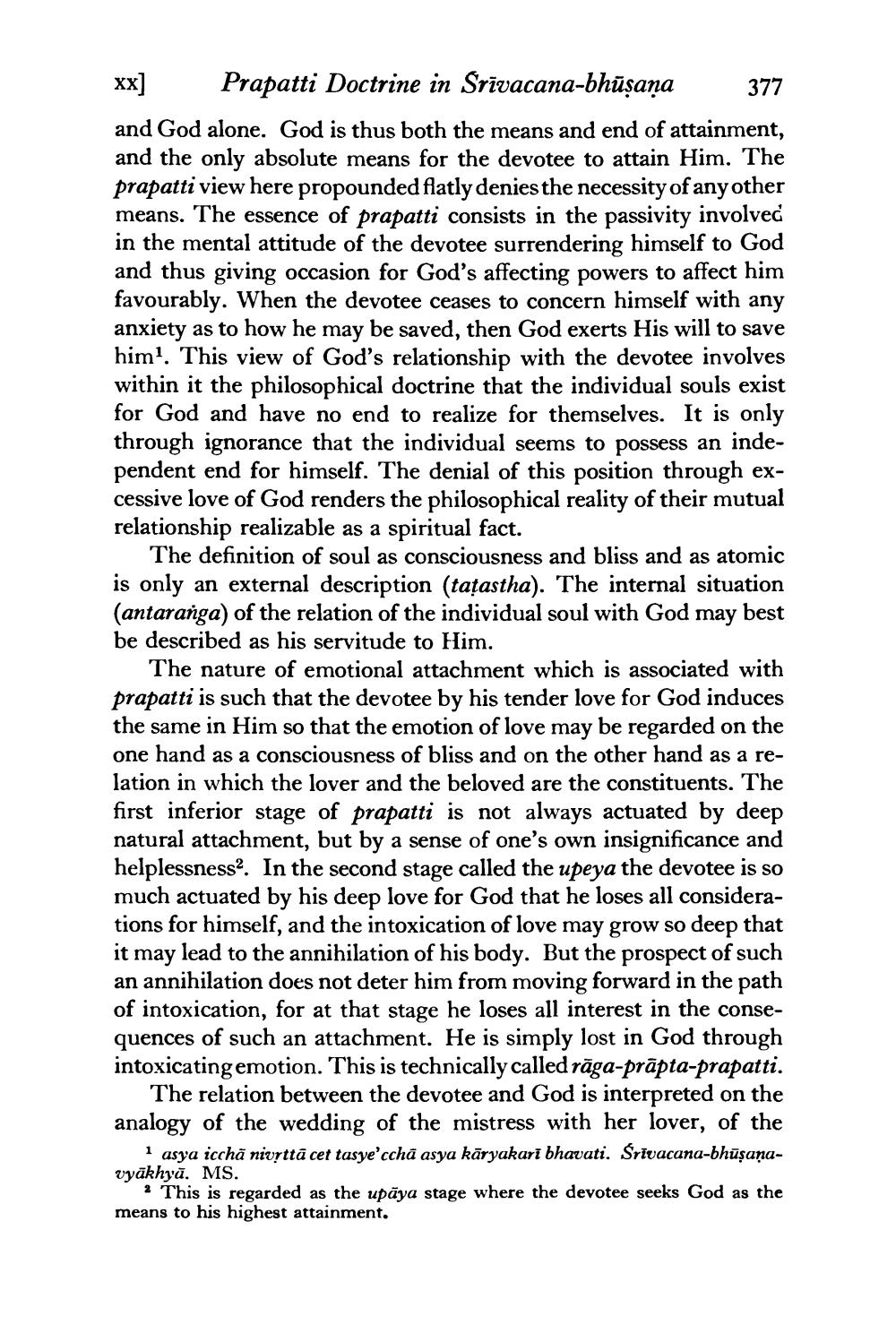________________
xx] Prapatti Doctrine in Srīvacana-bhūșaņa 377 and God alone. God is thus both the means and end of attainment, and the only absolute means for the devotee to attain Him. The prapatti view here propounded flatly denies the necessity of any other means. The essence of prapatti consists in the passivity involved in the mental attitude of the devotee surrendering himself to God and thus giving occasion for God's affecting powers to affect him favourably. When the devotee ceases to concern himself with any anxiety as to how he may be saved, then God exerts His will to save him! This view of God's relationship with the devotee involves within it the philosophical doctrine that the individual souls exist for God and have no end to realize for themselves. It is only through ignorance that the individual seems to possess an independent end for himself. The denial of this position through excessive love of God renders the philosophical reality of their mutual relationship realizable as a spiritual fact.
The definition of soul as consciousness and bliss and as atomic is only an external description (tațastha). The internal situation (antaranga) of the relation of the individual soul with God may best be described as his servitude to Him.
The nature of emotional attachment which is associated with prapatti is such that the devotee by his tender love for God induces the same in Him so that the emotion of love may be regarded on the one hand as a consciousness of bliss and on the other hand as a relation in which the lover and the beloved are the constituents. The first inferior stage of prapatti is not always actuated by deep natural attachment, but by a sense of one's own insignificance and helplessness. In the second stage called the upeya the devotee is so much actuated by his deep love for God that he loses all considerations for himself, and the intoxication of love may grow so deep that it may lead to the annihilation of his body. But the prospect of such an annihilation does not deter him from moving forward in the path of intoxication, for at that stage he loses all interest in the consequences of such an attachment. He is simply lost in God through intoxicating emotion. This is technically called rāga-prāpta-prapatti.
The relation between the devotee and God is interpreted on the analogy of the wedding of the mistress with her lover, of the
1 asya icchā nivyttā cet tasye'cchā asya kāryakari bhavati. Srivacana-bhūsanavyākhyā. MS.
? This is regarded as the upāya stage where the devotee seeks God as the means to his highest attainment.
Nu




